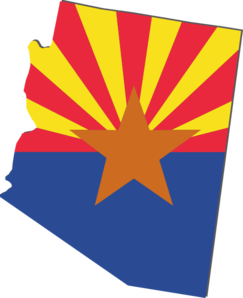March 28, 2019 •
Former Arizona Attorney General Launches Campaign Against Dark Money
Former Attorney General Terry Goddard launched an effort to prohibit the use of dark money in political campaigns. The proposed constitutional amendment, called The Voters Right to Know Act, seeks to require anyone spending at least $5,000 to influence the […]
 Former Attorney General Terry Goddard launched an effort to prohibit the use of dark money in political campaigns.
Former Attorney General Terry Goddard launched an effort to prohibit the use of dark money in political campaigns.
The proposed constitutional amendment, called The Voters Right to Know Act, seeks to require anyone spending at least $5,000 to influence the outcome of an Arizona election to disclose the original source of the money.
The disclosure requirement would apply to both state and local elections in Arizona.
In order for the proposal to appear on the ballot in the 2020 general election, the campaign committee behind the citizen initiative will need close to half a million signatures.
Last year, the same campaign committee missed qualification for the ballot by just over 2,000 signatures.
The amendment would require the Citizens Clean Elections Commission to enforce the new campaign finance disclosure rules and exempt the commission’s anti-dark money rules from oversight by the Governor’s Regulatory Review Council.
The proposal coincides with current Attorney General Mark Brnovich investigating whether Tempe’s ordinance banning dark money violates a law passed last year banning cities from enacting their own dark money disclosure regulations.
December 18, 2013 •
Arizona’s Supreme Court Allows Higher Political Contribution Limits
On December 17, 2013, the Arizona Supreme Court found House Bill 2593 to be constitutional, allowing newer and higher political contribution limits to take effect. On October 15, 2013, a state Court of Appeals had directed the secretary of state […]
 On December 17, 2013, the Arizona Supreme Court found House Bill 2593 to be constitutional, allowing newer and higher political contribution limits to take effect.
On December 17, 2013, the Arizona Supreme Court found House Bill 2593 to be constitutional, allowing newer and higher political contribution limits to take effect.
On October 15, 2013, a state Court of Appeals had directed the secretary of state not to enforce the new law, which had become effective on September 13, 2013. The lawsuit challenging the constitutionality of the new law was brought by the Citizens Clean Elections Commission and others from the state.
Individuals and noncertified political committees may now give $2,000 to candidates running for legislative and statewide offices who do not participate in the state’s Citizens Clean Elections Act campaign financing system. Contributions made to candidates running for local office may be made in amounts up to $2,500. Contribution limits by committees certified by the secretary of state have also been increased.
Additionally, H.B. 2593 removes aggregate contribution limitations for individuals and some political committees.
October 16, 2013 •
New AZ Contribution Limits Blocked
Constitutionality Challenged
 On October 15, 2013, an Arizona Court of Appeals directed the secretary of state not to enforce the law concerning contribution limits enacted in House Bill 2593, which had became effective on September 13, 2013.
On October 15, 2013, an Arizona Court of Appeals directed the secretary of state not to enforce the law concerning contribution limits enacted in House Bill 2593, which had became effective on September 13, 2013.
According to the Arizona Daily Star, the courts’ three-judge panel found the new law illegal without explaining the basis of its decision. The lawsuit challenging the constitutionality of the new law was brought by the Citizens Clean Elections Commission and others from the state.
Changes in the law include allowing individuals and noncertified political committees to give $2,000 to candidates running for legislative and statewide offices who do not participate in the state’s Citizens Clean Elections Act campaign financing system and removing the aggregate contribution limitations for individuals and some political committees.
November 23, 2011 •
Lawsuit Brought against Arizona Citizens Clean Elections Commission
Suit alleges the commission used funds to promote itself.
 The Arizona Republic reports that the group No Taxpayer Money for Politicians has brought a lawsuit against the Citizens Clean Elections Commission in Arizona.
The Arizona Republic reports that the group No Taxpayer Money for Politicians has brought a lawsuit against the Citizens Clean Elections Commission in Arizona.
Former state Sen. Jonathan Paton is quoted in the article as saying, “They’re using this [public money] for electioneering purposes and not for educating voters.”
The commission’s Executive Director Todd Lang called the suit a “wrong-headed” attempt to eliminate the agency’s education fund.
For the full story, read the article “Suit: Clean Elections agency misused tax dollars” by Mary Jo Pitzl.
State and Federal Communications, Inc. provides research and consulting services for government relations professionals on lobbying laws, procurement lobbying laws, political contribution laws in the United States and Canada. Learn more by visiting stateandfed.com.

